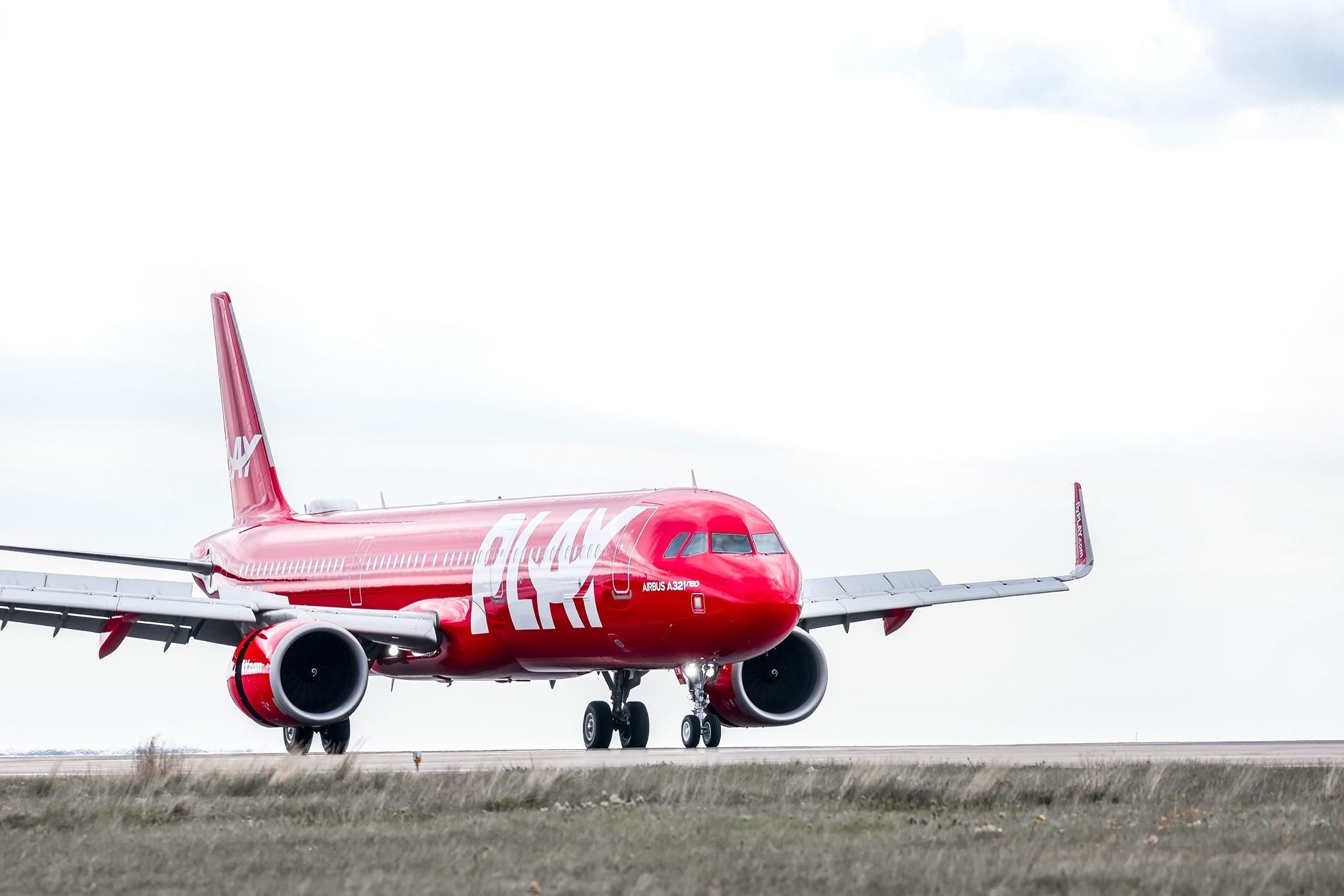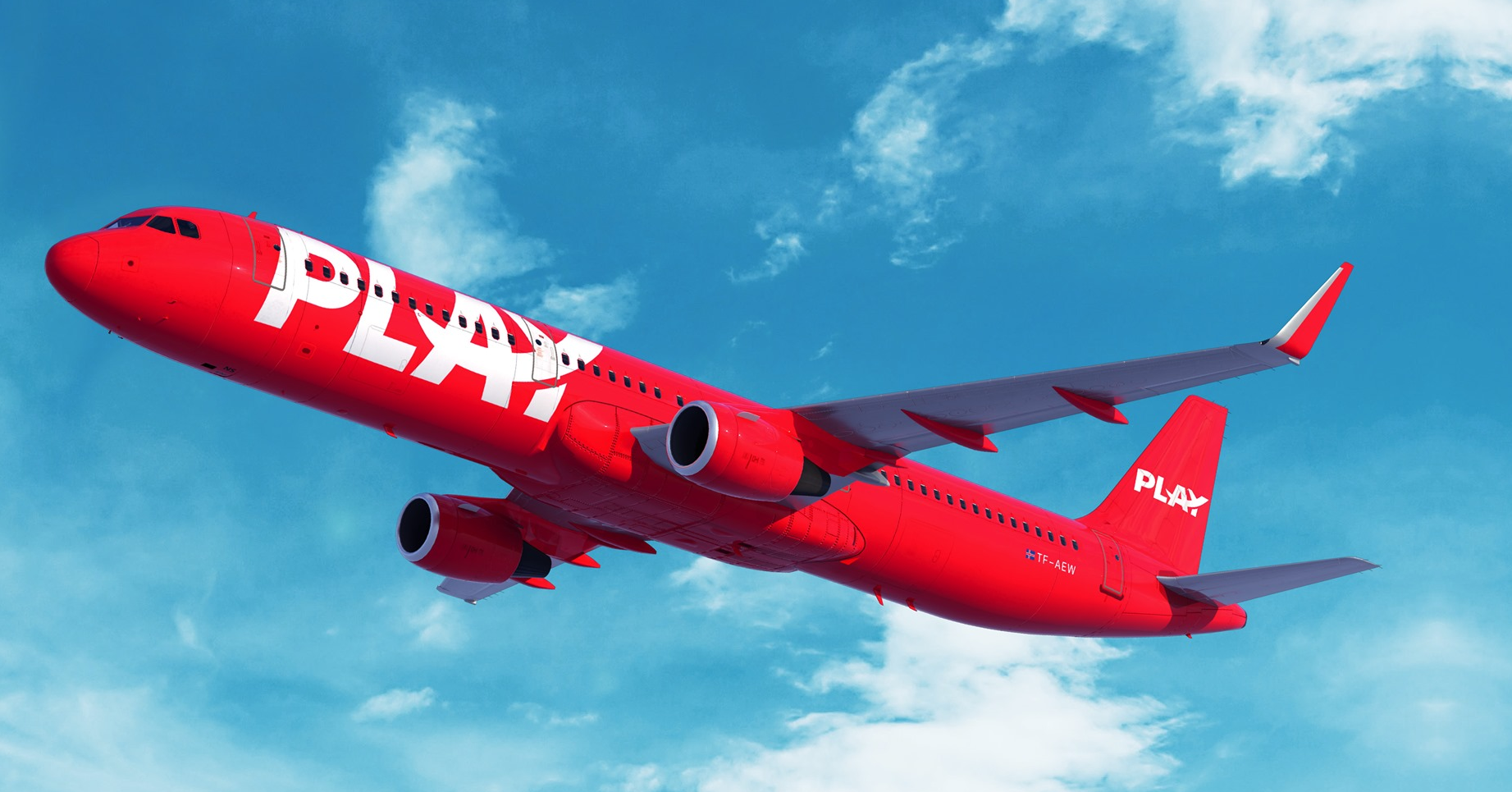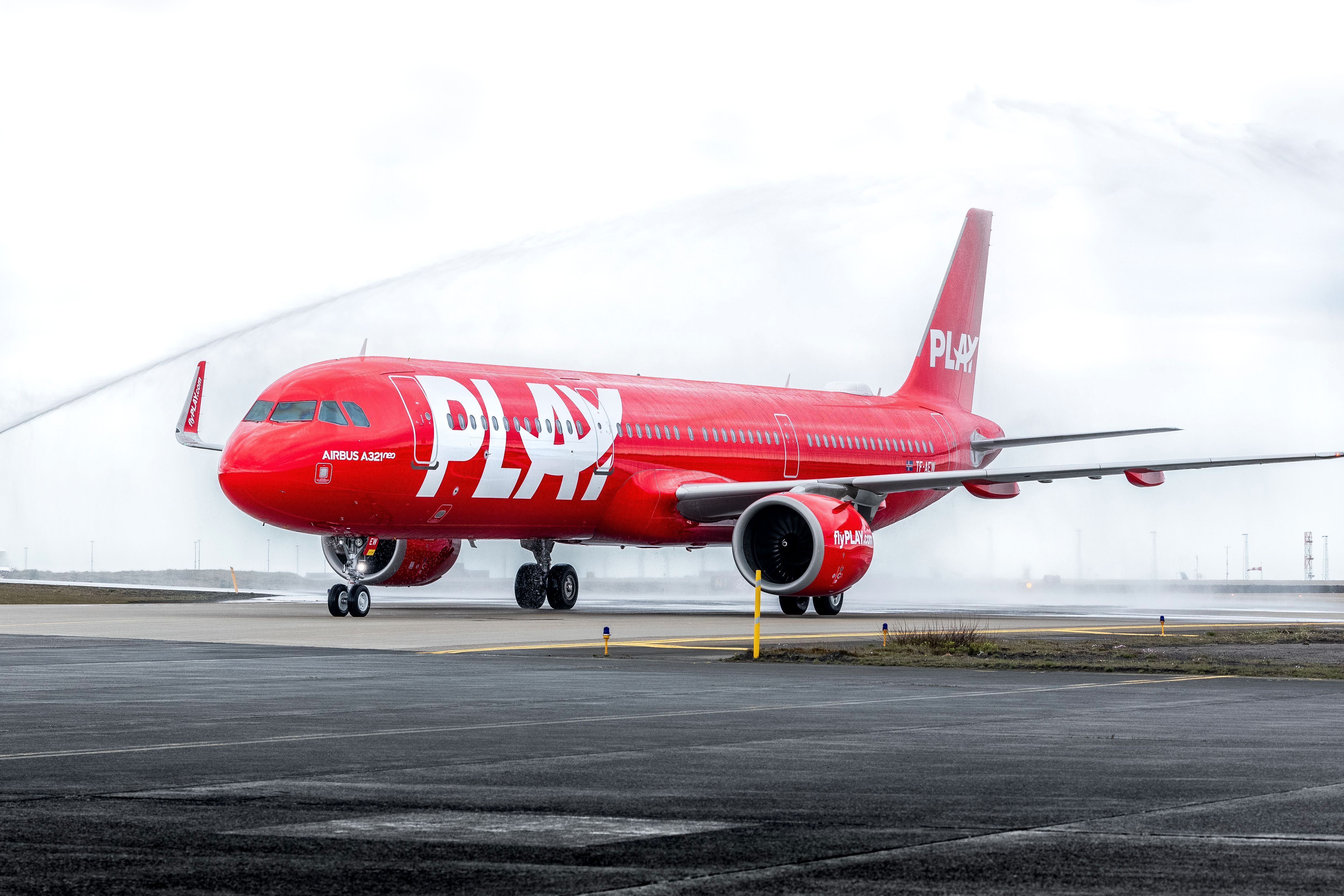Iceland's PLAY is trimming its growth plans this summer. The airline released its Q1 2022 results today, and buried in the fine print is the news that the planned arrival of an Airbus A321LR this northern summer will not happen, and consequently, one anticipated network expansion will not occur. PLAY attributes this to rising fuel prices.
Strong booking flows & growing load factors
PLAY only started flying in July 2021. The low-cost long-haul carrier is attempting to cash in on Iceland's wow factor and convince passengers traveling between the US and Europe via Reykjavík is a better option than crossing the Atlantic in a single hop. PLAY's cheaper airfares undoubtedly help the decision-making process. On Tuesday, PLAY reported they had carried around 230,000 passengers since last July and 60,000 passengers in the first quarter of this year.
The airline says its booking flow is strong, and load factors are growing. PLAY also says its cost of available seat kilometers (CASK) excluding fuel is decreasing as operations increase, and the airline continues to work its way toward an operational profit. The immediate takeout is PLAY isn't yet making a profit.
Omicron and rising fuel prices hurt PLAY
A surge in COVID-19 cases at the end of 2021 caused hesitation amongst passengers to book their travel and negatively impacted on booking inflows for Q1 2022. In January, PLAY carried 13,488 passengers with a load factor of 5 .7%. But by March, things had improved. PLAY carried 23,667 passengers in March and enjoyed a load factor of 66.9%.
"Booking inflow started to improve in January, with 95% more sold seats compared to December 2021," says PLAY's statement on its Q1 2022 results. "This improvement in booking inflow has continued into the second quarter of 2022, with 336% more sold seats in April compared to January, also reflecting more capacity. In April, the load factor was 72.4%, and we saw over 50% increase in passengers from the previous month."
While PLAY held cash and cash equivalents of more than US$42 million at the end of March, the omicron variant impacted revenue during the quarter, and the war in Ukraine resulted in higher fuel prices towards the end of the quarter, both impacting PLAY's financial results negatively.
PLAY pauses its planned Orlando flights
PLAY faced those rising fuel prices without a hedging strategy in place. They've recently implemented such a strategy and added a fuel surcharge to tickets, helping mitigate the impact of rising fuel prices. But fuel prices are clearly still causing some problems at PLAY.
"Due to the high price of fuel, PLAY has decided to change its fleet plan for summer 2022, and instead of leasing an Airbus A321neoLR, PLAY will lease an Airbus A320neo at more favorable terms, thus securing an even lower cost base in the long term," PLAY's quarterly update says.
"As a result, the planned three times weekly Orlando service that was supposed to start on September 30, 2022, will not commence. Following this change, PLAY's fleet in summer 2022 will consist of three Airbus A321neo and three Airbus A320neo."
Despite this small setback, PLAY anticipates further network growth in the second quarter of 2022. In May, PLAY is or has launched flights to Prague, Boston, Lisbon, Gothenburg, Brussels, Stavanger, Malaga, and Trondheim. In June, PLAY will launch services to Palma de Mallorca, Bologna, and New York.
"After a challenging winter, it is good to see this positive feeling materialize in an increased load factor and a growing number of passengers month after month," says PLAY CEO Birgir Jónsson. "PLAY will start operations to twelve new destinations in Europe and the U.S in May and June. This means that in summer 2022, PLAY will serve 26 destinations on both sides of the Atlantic, so it is safe to say that we have some very exciting times ahead."



